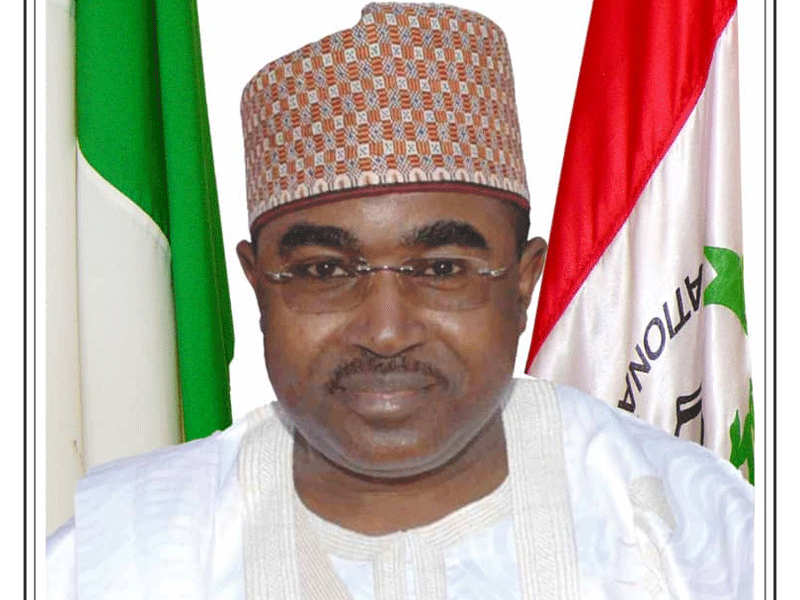Yes to death penalty for drug trafficking
On May 9, 2024, the Senate significantly toughened the law against drug trafficking, approving the death penalty for dealers and importers of cocaine, heroin and other hard drugs into Nigeria. The capital punishment also applies to all those involved in the cooking, preparation, trafficking, and dealing in or delivery of hard drugs, by any means. […]

NDLEA boss, Buba Marwa
On May 9, 2024, the Senate significantly toughened the law against drug trafficking, approving the death penalty for dealers and importers of cocaine, heroin and other hard drugs into Nigeria. The capital punishment also applies to all those involved in the cooking, preparation, trafficking, and dealing in or delivery of hard drugs, by any means.
The bill titled “National Drug Law Enforcement Agency Act (Amendment Bill) 2024” was passed after a majority of the senators supported it at the Committee of the Whole House.
The House of Representatives had earlier passed the bill, but without a death penalty provision, as the current maximum sentence is life in prison. Five select members of the Senate and House will need to harmonise the two versions before it goes to the president for assent.
When signed into law, Nigeria would join 35 countries and territories which have the death penalty for drug offences. As of December 2022, Harm Reduction International (HRI) recorded at least 285 executions for drug offences globally during the year, a 118% increase from 2021, and an 850% increase from 2020, which took place mostly in Iran, Saudi Arabia, Singapore, China, North Korea and Vietnam. Confirmed death sentences for drug offences were also on the rise; with at least 303 people sentenced to death in 17 countries. This marks a 28% increase from 2021.
Tinubu seeks regional, global alliance in maritime investment
Nigerian Navy at 68: Tinubu commissions three ships, two helicopters
The bill is a response to the alarming drug use and trafficking in the country. Nigeria has gone from being a transit point to a full-blown hub of drug trade as producer, consumer and distributor. The National Drug Law Enforcement Agency (NDLEA) says that over 14 million Nigerians use illegal drugs.
The National Agency for Food and Drug Administration and Control (NAFDAC), which banned production and import of codeine cough syrup in 2018, said opioid abuse, especially tramadol and cough syrups containing codeine, has been widespread throughout Nigeria.
Rights activists say death penalty for drug trafficking offences is not a solution to the drug challenge in Nigeria, pointing to the fact that more than 3,000 Nigerians who have spent 10 years on death row still live under the suspense and mental torture of death. This is the highest number in the world.
Lawmakers who opposed the measure expressed concerns about the irreversible nature of the death penalty due to the possibility of wrongful convictions through misapplications of the law, noting that law is sometimes bent against disadvantaged citizens.
In fact, a former Attorney General and Commissioner for Justice in Kaduna State, Barrister Mark Jacobs, kicked against the Senate’s approval, stating that it was not only retrogressive but out of fashion among the comity of nations. He contended that capital punishment has yet to stop the commission or eradication of crimes of murder, culpable homicide, armed robbery, and others.
But supporters of the death penalty argue that the threat of execution would serve as a stronger deterrent to drug traffickers than life imprisonment. Executions, especially where they are painful, humiliating, and public, may create a sense of horror that would prevent others from being tempted to commit similar crimes.
We at Daily Trust welcome the enactment of the law prescribing the death penalty for drug offences. This is because apart from the societal ills it brings, drug abuse, especially among the youth, causes dangerous health issues such as stroke, mental confusion, brain damage, seizures, lung disease, cancer, infections (e.g., hepatitis, HIV, AIDS, etc.), and heart disease.
Moreover, drug trafficking and consumption is wreaking havoc on Nigerians, especially children, youth and women, posing a threat to the life of future generations. Indeed, the UN Office on Drugs and Crime (UNODC) said in a report last month that drug trafficking in the Sahel region – Burkina Faso, Chad, Mali, Mauritania, and the Niger – hinders security, economic development and the rule of law while jeopardising public health.
But the law must be applied diligently to ensure that only the guilty are sentenced.
Most importantly, the Nigeria Police, Customs, Immigration and National Drug Law Enforcement Agency (NDLEA) should rise up to the due execution of their mandates. They should weed out the operatives within their agencies that are collaborating with drug traffickers and cartels.
We also call on the federal government to work with neighbouring countries in the Sahel region and the international community to take urgent, coordinated, and comprehensive action towards dismantling drug trafficking networks. Also, measures to reduce the burden of drug use and trafficking should involve the community, government, and religious bodies.
There should be more seriousness to tackling the challenge of drug trafficking and abuse. And the death penalty should serve as an additional deterrent.
